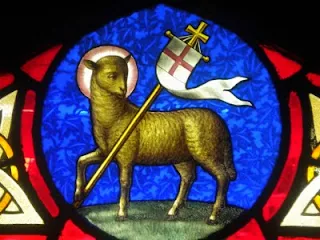
Climb! Climb! Climb!
The Feast of the Transfiguration is a feast of motion and movement. Our Lord takes his chosen disciples up on the mountain to reveal His glory; and the response is quite simply this, get down the mountain and walk on the
via crucis to Jerusalem. Up and down, the motion that transfigures us to be disciples and to become bread to others for the Kingdom.
Up to ascend to the heavens is our response of love to God, upwards towards God who calls us into a life of divine consumption. Flowing down from heaven is God descending into our lives, into our souls, stirring us to become what we were created to be.
Once we have climbed the heights and been blinded by the radiance of brilliant grace, we are forever changed--we are transfigured into love. All we can do, then, is feel our way down to the bottom where we must live. We cannot stay on the mountaintop forever! The motion of transfiguration is ongoing and a permanent reality in our lives. Ours is the decision to climb and to follow the call of Our Lord to the summit where we can be consumed into His heart. And so the descent is an obvious one, stay and die or get down and live and work for the Kingdom of Christ.
From the Office of Matins, Monastic Breviary.
An Ancient Hymn of Transfiguration:
Quincumque Christum
All ye who yearn the Christ to see,
Uplift your eyes exultingly,
Eternal glory's symbol there
To your astonished glaze lies bare.
Exceeding bright the mystery
To us revealed, that knows no end,
Celestial, everlasting, high,
And older far than heaven or hell.
We there the Gentiles' King behold,
And King of his own Israel;
To Abraham once promised,
And all his seed, whilst ages run.
To him, fortold by prophets old,
Again by prophets witnessed here,
The Father's greater witness bids
Us listen and with faith adore.
To thee, O Lord, be glory given,
Revealing thus thyself to-day,
With Father and with Spirit one,
For ever and for evermore. Amen.




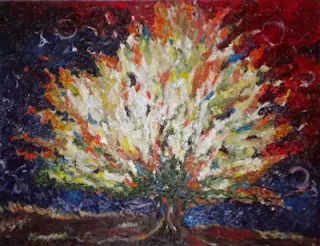

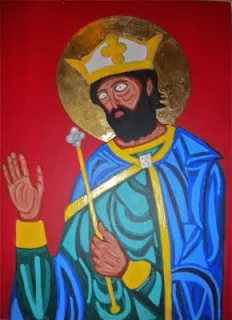
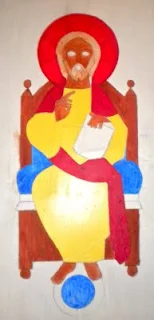
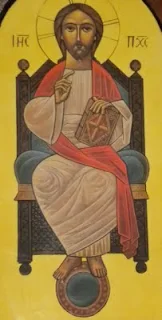







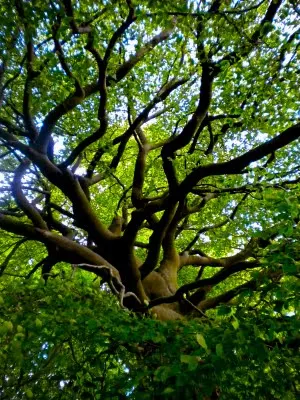






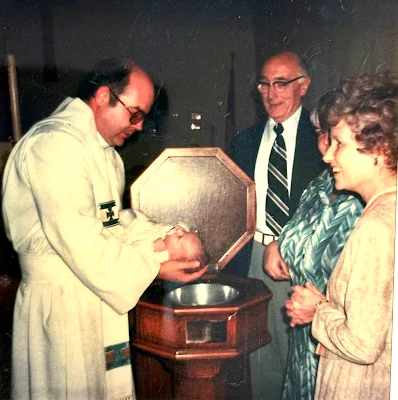





 alone and to pray. We see this pattern again and again. To go up to the mountain symbolizes a lot of the movement of the Gospel story—a movement of ascent, up to the heavens, the language of resurrection. Mark does not give us the content of the prayer and we can only presume that in that act of prayer there was more movement of descent, God indwelling in the recesses of the heart than could ever be reported. There is nothing wrong with the language of resurrection, for it’s a critical component to our story and our common life. However, we seem to have lost the language of Pentecost, the language of Incarnation—God descending to us, God desiring to be in an intimate relationship with God’s creation. The language of spirituality, and I would be willing to wager that most books on Spirituality, neglect this essential descending movement of prayer.
alone and to pray. We see this pattern again and again. To go up to the mountain symbolizes a lot of the movement of the Gospel story—a movement of ascent, up to the heavens, the language of resurrection. Mark does not give us the content of the prayer and we can only presume that in that act of prayer there was more movement of descent, God indwelling in the recesses of the heart than could ever be reported. There is nothing wrong with the language of resurrection, for it’s a critical component to our story and our common life. However, we seem to have lost the language of Pentecost, the language of Incarnation—God descending to us, God desiring to be in an intimate relationship with God’s creation. The language of spirituality, and I would be willing to wager that most books on Spirituality, neglect this essential descending movement of prayer. surrounding by God’s gracious mercy and love.
surrounding by God’s gracious mercy and love.


